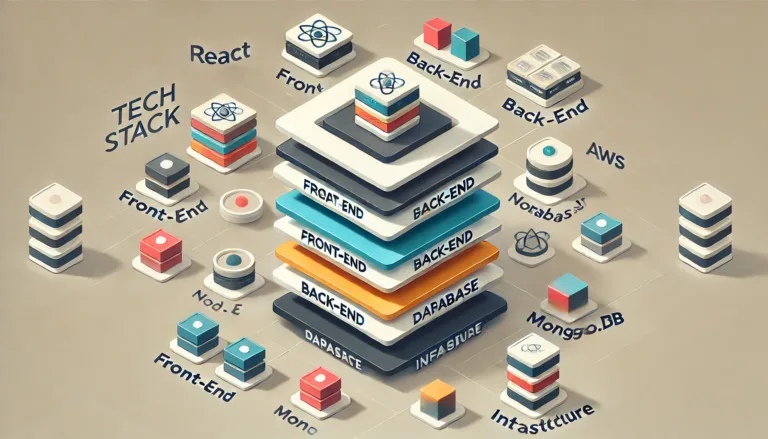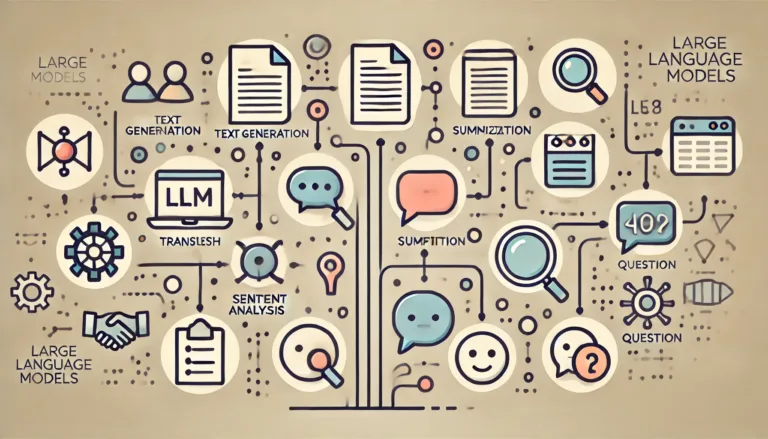Introduction
Choosing the right programming language can make all the difference in a developer’s career. As technology rapidly evolves, so does the demand for certain programming languages. Whether you’re starting your coding journey or looking to upskill, understanding which languages are in demand is crucial for landing a lucrative job.
In this blog, we’ll dive into the best programming languages for job seekers, based on current industry needs, salary potential, and the versatility of each language. You’ll gain a clearer picture of which languages offer the best opportunities and what makes them stand out in today’s competitive job market.
We’ll break down the factors that contribute to a language’s relevance, examine the key languages that employers are actively seeking, and offer insights to help you make an informed decision.
Factors to Consider When Choosing a Programming Language for Employment
Industry Demand
Industry demand is perhaps the most critical factor when deciding which programming language to learn. Choosing a language that aligns with the current job market increases your chances of landing a role quickly. Platforms like Glassdoor, LinkedIn, and Indeed often publish reports on the most sought-after skills, making them valuable resources for tracking language popularity and demand. For example, languages like Python and Java consistently rank high on these platforms due to their widespread use across multiple industries.
It’s essential to regularly review these trends and monitor changes in demand to ensure that your skills remain relevant. Additionally, joining developer communities and following industry reports can provide deeper insights into emerging languages and technologies.
Salary Potential
Salary is often a key motivator when deciding which programming language to learn. The tech industry is known for its lucrative salaries, but the compensation varies significantly based on the language and its application. For example, languages like Python and Go (Golang) command some of the highest salaries due to their roles in specialized fields like data science and cloud computing.
The value of a language in the job market is often tied to its complexity and its ability to solve high-impact problems. As a general rule, languages that are versatile and critical to business operations, such as Java or JavaScript, tend to have steady compensation, while niche languages like Swift may offer high salaries but fewer job opportunities.
Understanding the salary landscape for each language can help you prioritize your learning and ensure that your efforts translate into financial success.
Versatility and Learning Curve
Versatility is another vital consideration. Some languages, such as Python and JavaScript, are known for their adaptability, allowing developers to work across various domains, from web development to data analysis. This makes them attractive choices for beginners and experienced developers alike.
However, the learning curve can vary dramatically. While Python is praised for its simplicity and readability, languages like C++ or Go may require more time to master due to their complex syntax and lower-level operations. Consider your personal preferences and career goals when evaluating a language’s versatility and ease of learning.
Ultimately, selecting a language that balances versatility with a manageable learning curve can provide you with a strong foundation for a successful tech career.
Overview of Top Programming Languages for Jobs
When it comes to choosing a programming language for securing a job, it’s essential to focus on languages that not only have high demand but also offer strong career growth, salary prospects, and diverse applications. Below is a detailed rundown of the top programming languages currently dominating the job market and why they stand out.

Check out my other blog post to learn about the easiest coding language to start now.
1. Python
Overview
Python is celebrated for its simplicity and readability, making it accessible to beginners and powerful for experienced developers. Its broad application spans web development, artificial intelligence (AI), machine learning, data science, automation, and more, establishing it as a truly versatile language.
Job Market Analysis
Python consistently ranks as one of the most sought-after languages by employers. It is heavily featured in job postings across platforms like LinkedIn, Glassdoor, and Indeed, and is favored in fields like data science, backend development, and AI research.
Salary Insights
Python developers can expect to earn upwards of $150,000 annually in the United States, reflecting its high demand and the value it brings to tech organizations.
2. Java
Overview
Java is a cornerstone in the programming world, known for its stability and cross-platform capabilities. It is widely used in enterprise-level applications, financial services, and Android app development, making it a reliable choice for long-term career growth.
Job Market Analysis
Java is the second-most demanded language by recruiters, particularly in finance, e-commerce, and large-scale enterprise solutions. Its enduring popularity is due to its robustness and compatibility with a variety of platforms.
Salary Insights
The average salary for Java developers is around $120,000 per year, making it a strong contender for developers seeking lucrative enterprise roles.
3. JavaScript
Overview
As the core language of the web, JavaScript is essential for front-end development. It powers dynamic web content and interactive elements, with frameworks like React, Angular, and Vue.js driving modern web applications.
Job Market Analysis
JavaScript is a consistent top choice among employers, particularly for roles in web development. Its popularity extends to both front-end and full-stack development, making it a must-have skill for aspiring web developers.
Salary Insights
JavaScript developers earn salaries comparable to Java developers, with compensation varying based on specialization and expertise in frameworks.
4. SQL
Overview
SQL (Structured Query Language) is vital for database management, manipulation, and querying. It is often a core requirement in roles involving data analytics, backend development, and business intelligence.
Job Market Analysis
The demand for SQL has surged alongside the growth of data analytics and data-centric roles. It is a key skill for database administrators, data engineers, and developers working with complex data structures.
Salary Insights
SQL developers typically earn competitive salaries, often exceeding $100,000 depending on their level of expertise and the complexity of the projects they manage.
5. C#
Overview
C#, developed by Microsoft, is commonly used for building Windows applications and game development, especially with the Unity engine. It is favored for its strong typing system, ease of use, and support for building enterprise-level applications.
Job Market Analysis
C# remains a popular language in specific niches, such as game development and enterprise software. Its versatility makes it a valuable asset for developers looking to specialize in these areas.
Salary Insights
C# developers typically earn between $90,000 and $120,000 annually, depending on their focus and the industry they work in.
6. Go (Golang)
Overview
Go, also known as Golang, is known for its efficiency, simplicity, and high performance. It is designed for system-level programming, cloud services, and large-scale network applications, making it a go-to language for building scalable solutions.
Job Market Analysis
Go has seen rapid adoption by companies like Google, Uber, and Netflix, driving its popularity in cloud services and backend systems. Its concurrency support and performance make it highly desirable for developers working in these fields.
Salary Insights
Go developers can earn approximately $135,000 per year, making it one of the higher-paying languages for backend and systems programming.
7. TypeScript
Overview
TypeScript is an extension of JavaScript that adds static typing, improving code quality and error detection. It is widely used in large-scale web applications and by developers who prioritize code maintainability and scalability.
Job Market Analysis
Demand for TypeScript has grown rapidly, with a reported 392% growth in job listings. Its use is expanding in complex web applications, making it a popular choice for developers focused on front-end and full-stack development.
Salary Insights
Salaries for TypeScript developers are competitive with those of JavaScript developers, reflecting its increasing value in the front-end ecosystem and its role in large-scale applications.
Language-Specific Career Paths and Recommendations
Different programming languages cater to different types of development roles and industries. Choosing a language that aligns with your desired career path can streamline your learning process and maximize your job opportunities. Below are language-specific recommendations for various fields, along with explanations on why they are the best fit.
1. For Web Development
Recommendation: Focus on JavaScript and TypeScript due to their dominance in front-end roles.
Explanation: JavaScript is the backbone of front-end development, responsible for the interactive elements and dynamic features of websites. It works seamlessly with HTML and CSS, making it essential for building user-facing components. TypeScript, a superset of JavaScript, enhances code quality by adding static typing, making it ideal for large-scale projects where maintainability and error reduction are critical. Both languages are widely supported by frameworks like React, Angular, and Vue.js, which are crucial for creating modern web applications.
2. For Data Science and AI
Recommendation: Python is the language of choice.
Explanation: Python’s popularity in data science and AI is largely due to its rich ecosystem of libraries and frameworks such as Pandas, NumPy, TensorFlow, and PyTorch. These tools provide built-in functions for data manipulation, statistical analysis, and machine learning, making Python indispensable for data scientists and AI researchers. Its readable syntax also makes complex data operations more manageable, allowing developers to focus on solving problems rather than on the intricacies of code.
3. For Enterprise Solutions
Recommendation: Java and C#.
Explanation: Java and C# are both robust, statically-typed languages that are widely used in large-scale enterprise systems. Java, in particular, is known for its stability and backward compatibility, making it a go-to language for building enterprise applications in industries like finance and telecommunications. C#, developed by Microsoft, is commonly used for Windows-based applications and enterprise solutions. It also has strong support in game development via the Unity engine, adding to its versatility. Both languages are highly valued for their performance, security features, and scalability.
4. For Cloud and Backend Development
Recommendation: Go and SQL.
Explanation: Go (Golang) is optimized for high-performance backend systems, microservices, and cloud applications. Its built-in concurrency support and simplicity make it a top choice for companies like Google and Uber, which require efficient processing of large-scale data and high-speed operations. SQL, on the other hand, is crucial for managing and querying large databases. It is used extensively in roles that involve data storage, retrieval, and manipulation, making it a fundamental skill for backend and cloud developers who work with relational databases and large-scale data operations.
Emerging Languages to Keep an Eye On
While established programming languages continue to dominate the job market, there are a few emerging languages that are quickly gaining traction. These languages are often designed to address specific pain points in development, offer performance improvements, or provide better developer experience. Here’s a look at three up-and-coming languages that are worth considering for future-proofing your skill set:
1. Rust
High performance and memory safety, potential for system-level programming.
Rust has been praised for its focus on safety and performance, particularly in memory management. Its ability to eliminate common bugs, such as null pointer dereferencing and buffer overflows, makes it a reliable choice for system-level programming. As a result, Rust is becoming increasingly popular for building secure and high-performance applications, including operating systems, game engines, and even blockchain technology. Its use by companies like Mozilla and Dropbox highlights its growing relevance in the industry.
2. Kotlin
Gaining popularity for Android development and as an alternative to Java.
Kotlin is a modern language developed by JetBrains, designed to be fully interoperable with Java. It has become the preferred language for Android development, as endorsed by Google. Kotlin offers a concise and expressive syntax that reduces boilerplate code, making development faster and more enjoyable. It’s also gaining traction in backend development with frameworks like Ktor. Kotlin’s ability to integrate seamlessly with existing Java projects makes it a strong contender for developers looking to work in mobile and enterprise solutions.
3. Swift
Preferred for iOS development, growing steadily.
Swift, developed by Apple, is the language of choice for iOS, macOS, watchOS, and tvOS app development. Known for its speed and modern syntax, Swift provides a clean and efficient way to build applications across Apple’s ecosystem. It’s steadily growing in popularity, especially among mobile developers aiming to create iOS apps. Swift is also expanding its reach into server-side programming, making it a versatile language to consider for developers invested in the Apple ecosystem.
Conclusion
In today’s tech landscape, choosing the right programming language can be a game-changer for your career. The language you select should not only align with your current interests but also with the demands of the job market and your long-term career goals.
- Best All-Rounder: For those seeking a versatile and high-demand language, Python is the top recommendation. Its applicability in data science, AI, web development, and automation makes it a solid choice for various career paths.
- For Web Development: JavaScript and TypeScript are indispensable. They are essential for front-end and full-stack development, offering numerous opportunities in the tech job market.
- For High-Paying Roles: Consider learning Go or Python. Both languages offer lucrative salaries, with Go particularly favored in cloud and backend development, and Python excelling in data science and AI roles.
Ultimately, your choice should reflect your career aspirations. Regularly assessing industry trends and learning emerging languages like Rust, Kotlin, and Swift can also position you for new opportunities. Check out my other post to learn about responsibilities common among software engineers!
Evaluate your career goals and determine which language aligns best with your aspirations. Whether you’re just starting or looking to switch fields, explore learning resources, online courses, and community forums to deepen your expertise in the language that best suits your path forward. Happy coding!
FAQ Section
1. Which programming language should I learn first?
For beginners, Python is highly recommended due to its simplicity, readability, and broad application across various fields like web development, data science, and automation. Its easy-to-understand syntax makes it a great starting point before diving into more complex languages. Also check out this post to learn about the easiest coding languages! Spoiler alert: Python is the first.
2. Is it better to specialize in one language or learn multiple languages?
It depends on your career goals. For beginners, focusing on mastering one versatile language (like Python or JavaScript) is a good approach. As you gain experience, learning additional languages can expand your opportunities and make you more adaptable in the job market.
3. Which language offers the highest salary?
In general, languages like Go and Python command some of the highest salaries, especially for specialized roles in backend development and data science. However, salary potential also depends on your expertise, location, and the industry you choose.
4. Are newer languages like Kotlin and Rust worth learning?
Absolutely! Languages like Kotlin and Rust are gaining traction, especially in Android development and system-level programming, respectively. Learning these languages can future-proof your skills and position you as an early adopter, which is attractive to employers looking for cutting-edge solutions.
5. How do I decide which programming language is right for my career?
Start by identifying your career interests—whether it’s web development, mobile app development, data science, or cloud computing. Then, choose a language that aligns with those goals and has strong demand in that field. Refer to resources like job postings and industry reports to confirm your choice.









